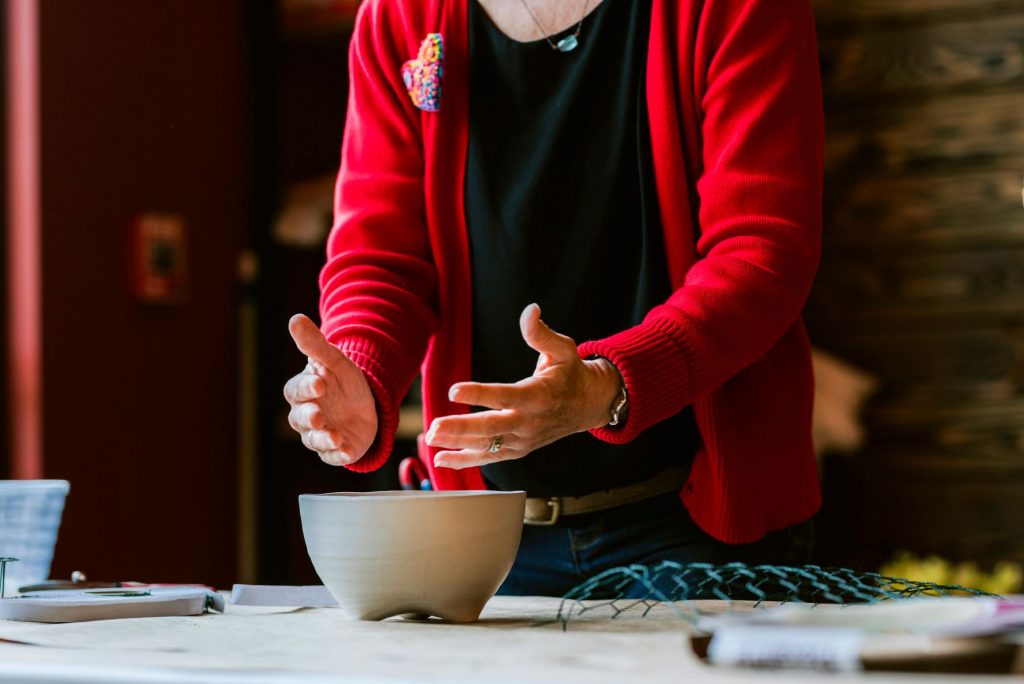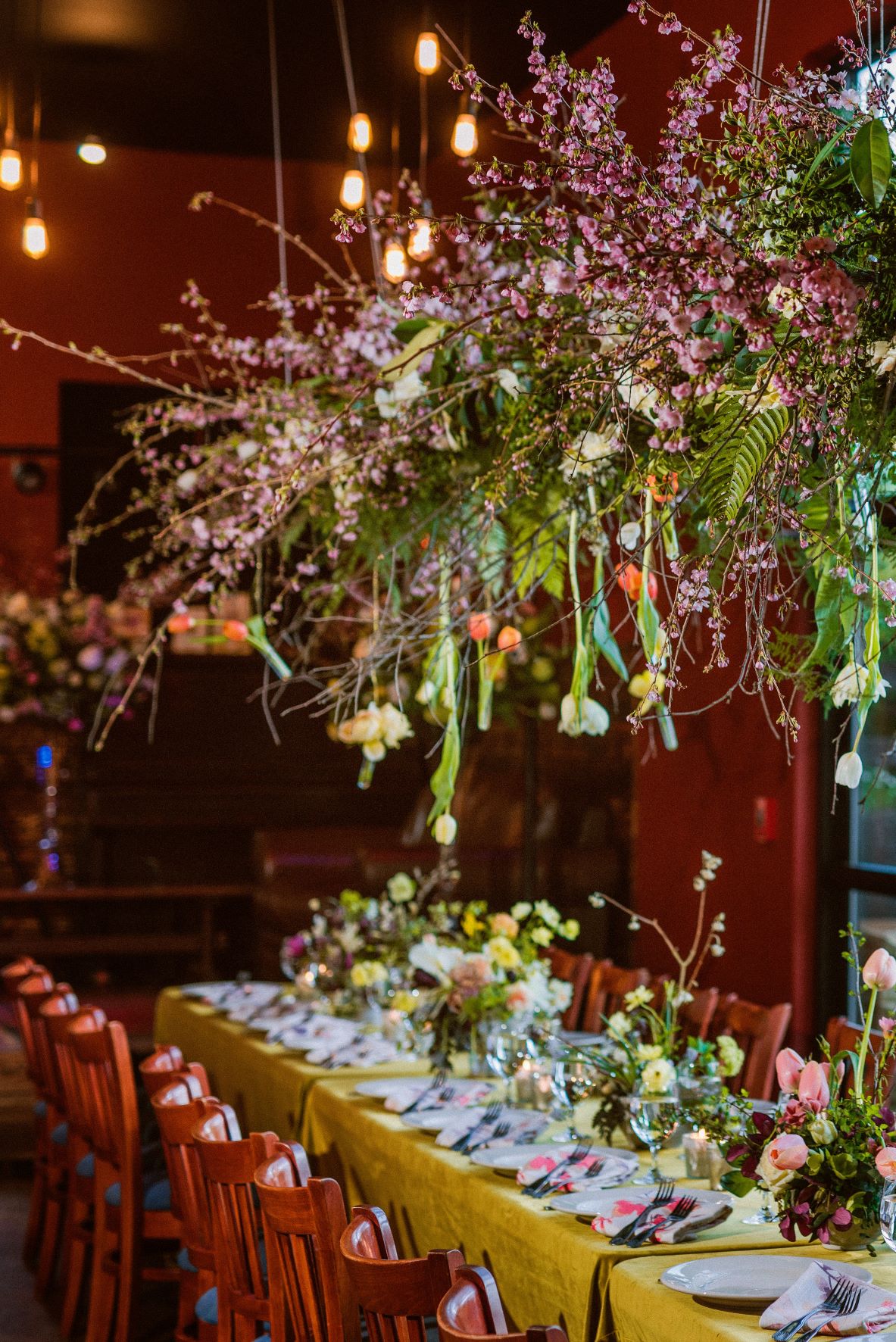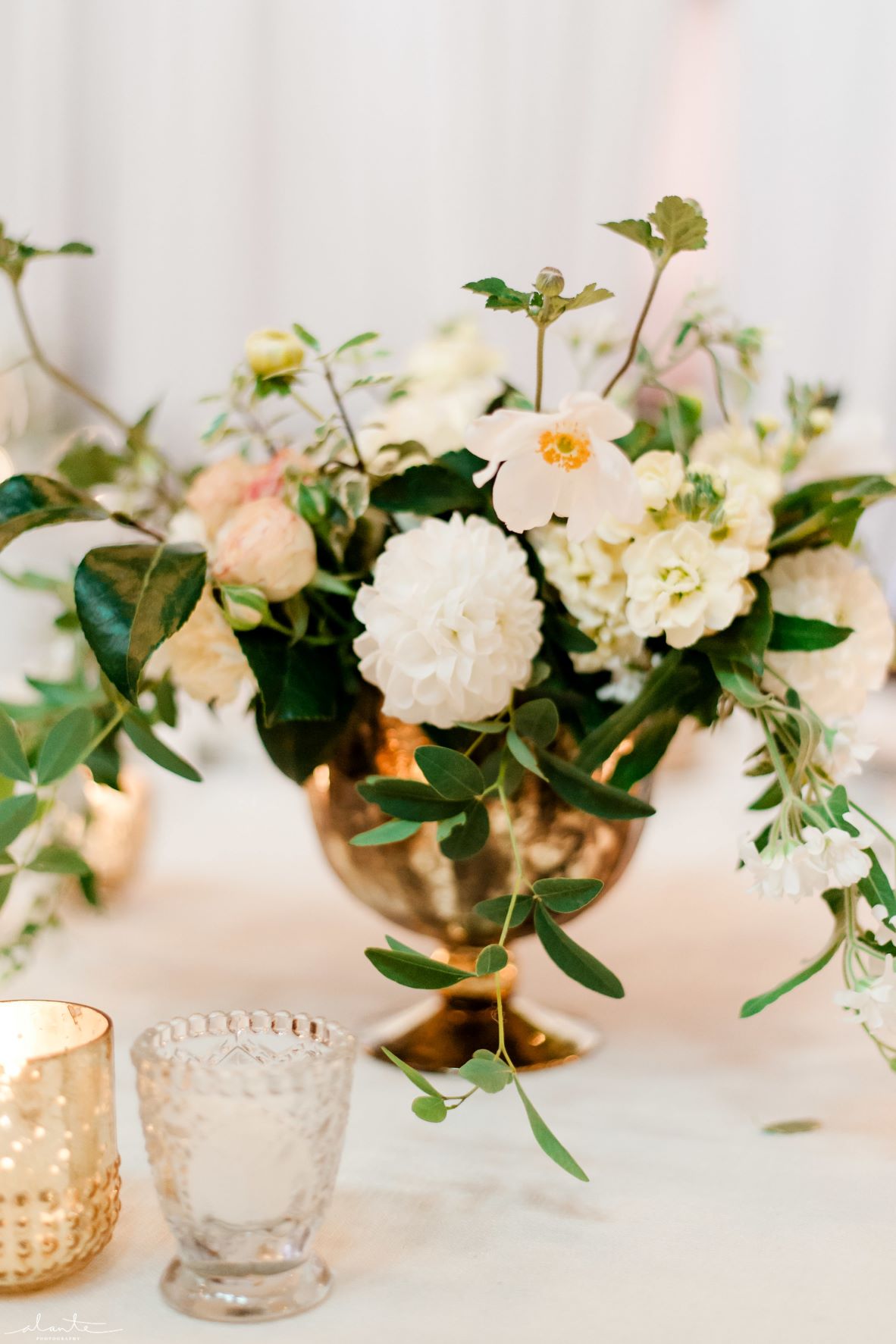Tobey Nelson, US
Tobey Nelson is a true seed-to-vase advocate – her work starts in the garden. Her business, Tobey Nelson Weddings & Events – based in the glorious Whidbey Island in Washington State – had to do some swift pivoting during Covid. But her willingness to get her hands dirty and pass on her knowledge, artistry, and commitment to sustainability to others has worked to her advantage.
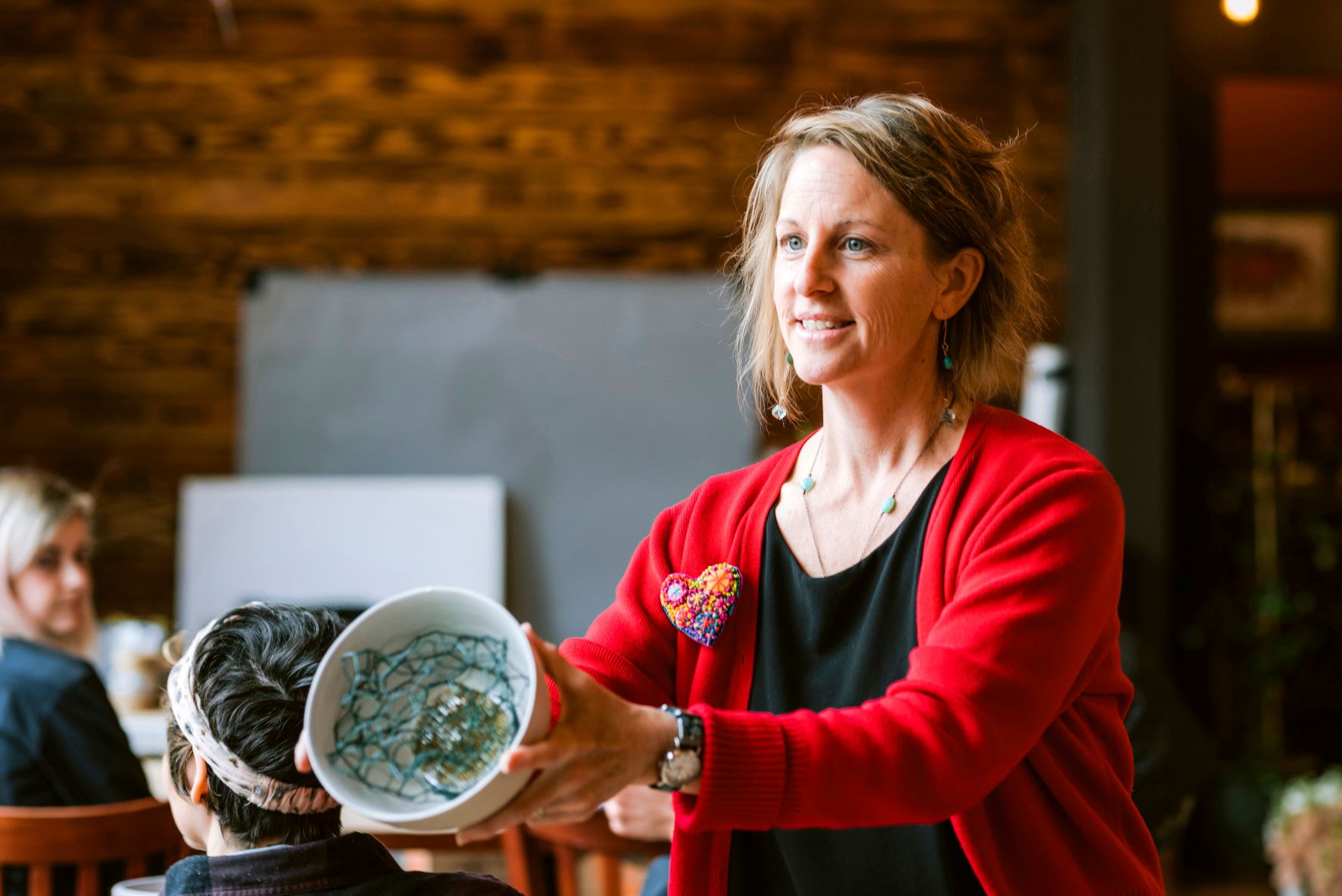
Please tell us a little about your work history.
I have been a professional gardener all my working life. I was tired of rain gear and mud and looking for another career where I could still touch plants, but be a little less dirty all the time. I found floristry!
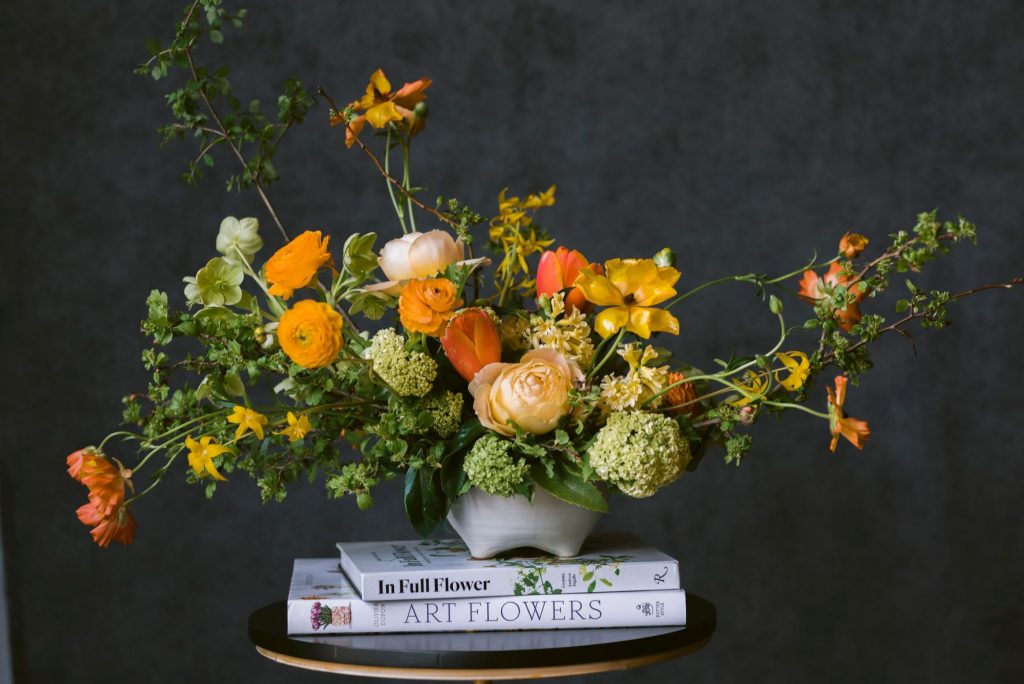
What inspires you?
The work itself is joyful, and the flowers themselves are usually an inspiration. I always love it when people smile upon seeing my creation. I also love teaching people about floral design and gardening. I love seeing others connect with nature.
Biggest misconceptions about being a career florist?
As much as it is “fun” to be a florist, there is a lot of drudgery, long hours on sore feet, exhaustion and pressure working with a perishable product, and sometimes unrealistic expectations from customers. It is challenging when people say “it must be so fun to be a florist” and you know they don’t have a clue about any of the really hard, physically demanding work it requires.
As an employer, what do you look for in employees when hiring?
Curiosity, open minds, willingness to work hard.
What do you respect in other florists?
A willingness to think outside the box, to work within the confines of sustainability, and a love of nature and of craftsmanship.


What have been your biggest work highlights to date?
I cherish my memories of my Whidbey Flower Workshops where great groups of people come together, learn, and create beautiful things with sustainable methodologies. It has also been a thrill having my work published and being invited by my peers to lead workshops.
What are your greatest strengths?
I like to think I am a good communicator. I am pragmatic and have a good work ethic.
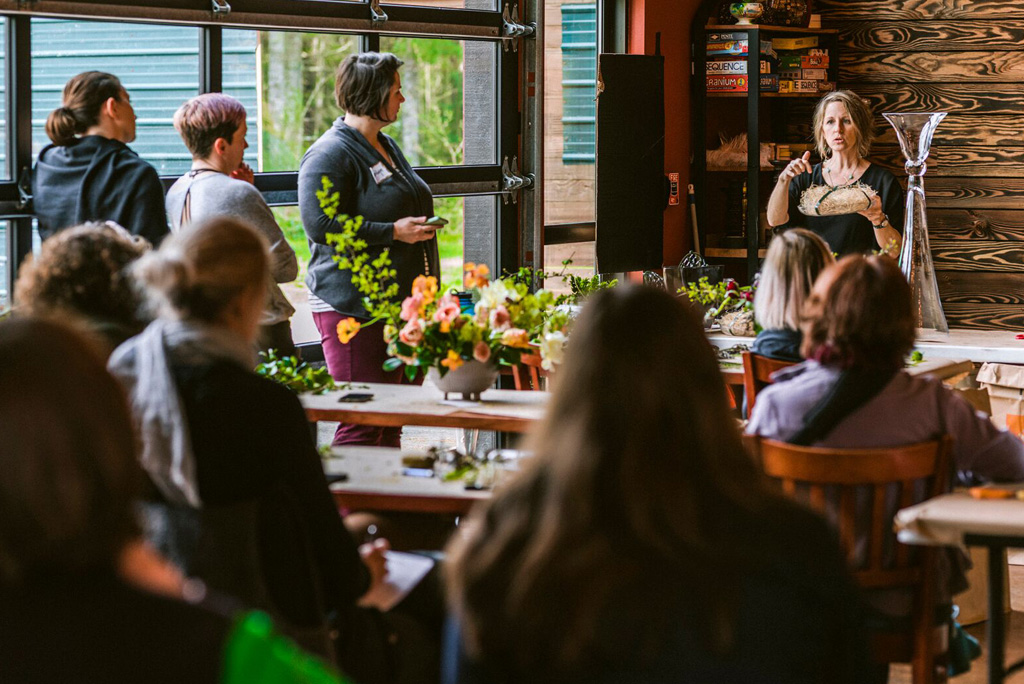
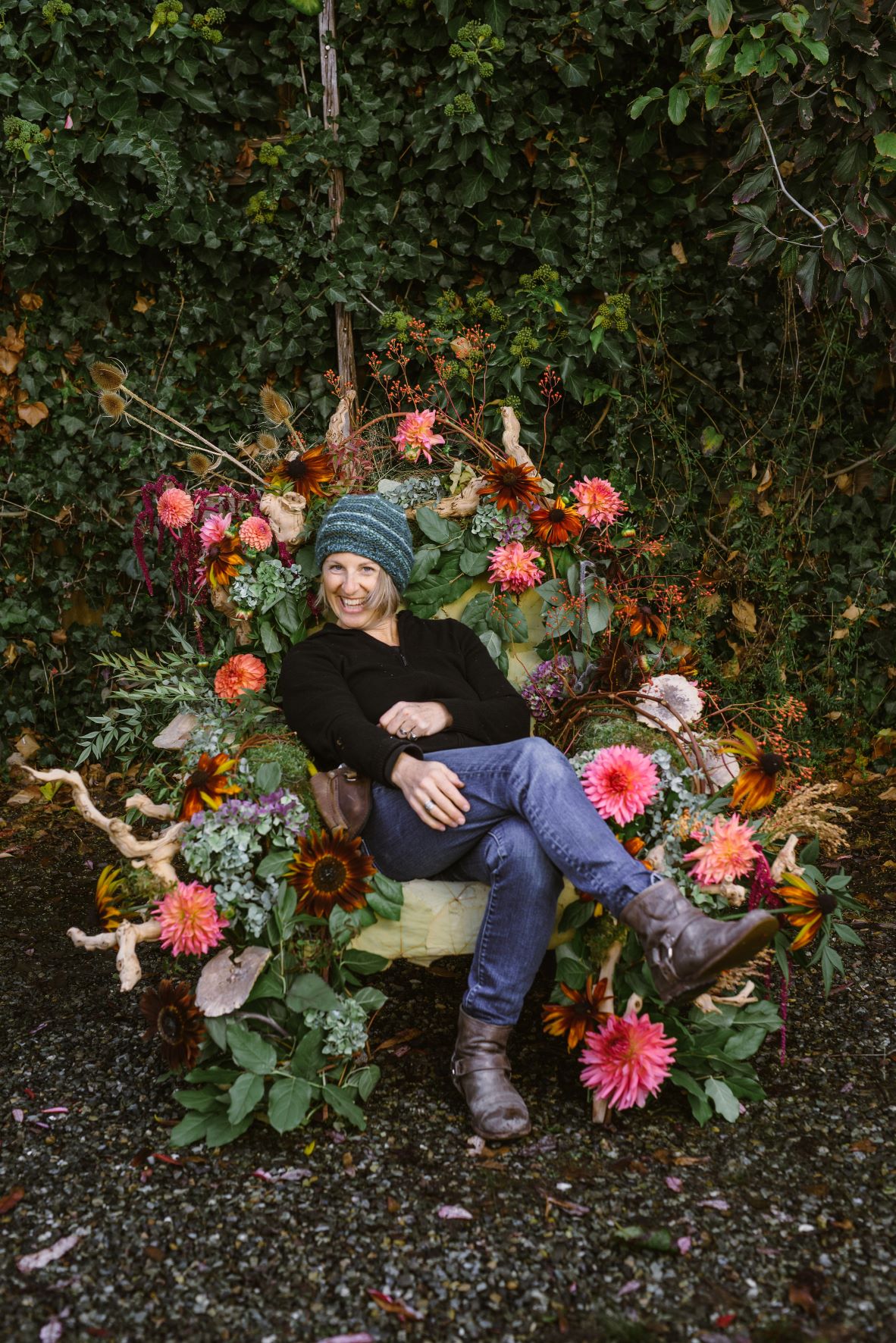

Social media has had a huge impact on floristry. What do you think the main impacts have been and do you think these are positive or negative?
It is exciting to see what people around the world are making, and it is fun to share what I am doing. I do think there is a concerning factor to only show the sunny side of things, and that can lead to unrealistic expectations or misunderstandings. I think it is positive when people are sharing good info and negative when they are spreading harmful info! For example, when an influencer shows images with bleached/dyed product and that creates the demand, it is negative. But if another influencer can show a natural trend, like designing without foam, then it is helpful!
What concerns you most about the direction floristry/the industry is heading in?
I dislike seeing people not thinking about the consequences of their choices and blindly following trends. We need to consider the origin of our blooms, and what has happened to them on their way to us. Have they been fumigated? Flown on a plane? Painted? We must choose more natural ways to work in our craft and have a lighter footprint on the earth.

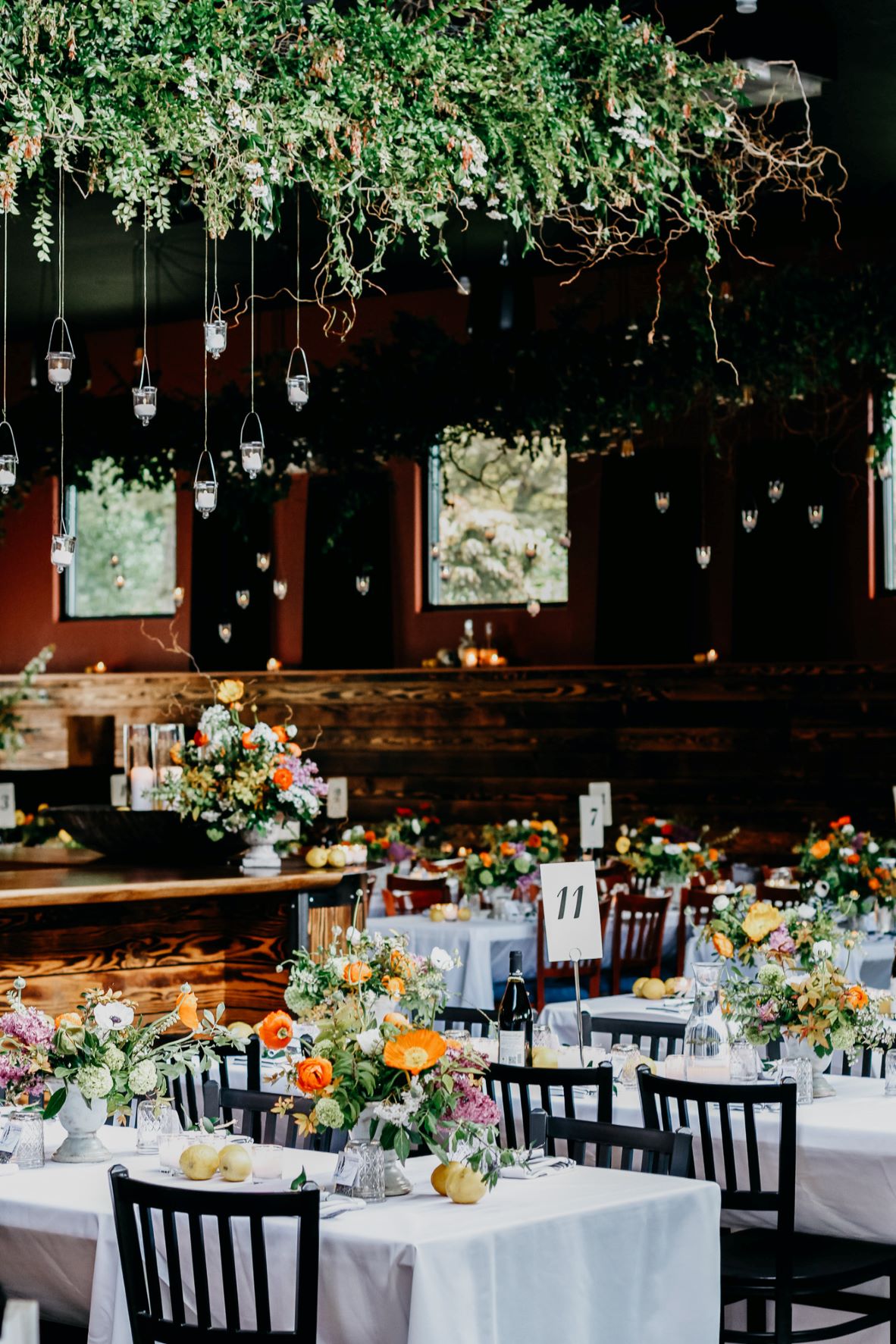
The word ‘sustainability’ in floristry is getting a good run – what does sustainability mean to you in relation to your business practice?
Being sustainable means I make choices that do not cause harm, or cause the least harm, to the environment or to people. It means working without floral foam and choosing reusable or compostable mechanics instead. It means sourcing locally grown products first, certified sustainable products second, and never using imports that are not certified sustainable. It means using natural fiber ribbons. It means charging my worth. It means bringing my installations back to the studio so I can pick them apart and reuse all my mechanics and compost all my botanicals. It means educating my clients so they value the way I work and so that they know how to shop for flowers in the future. It means educating other florists so they can keep the wave of positive change moving along through the industry.
What are the top five tools in your toolbox?
Japanese pruning shears, chicken wire, flower frog, bindwire, and gripples.
